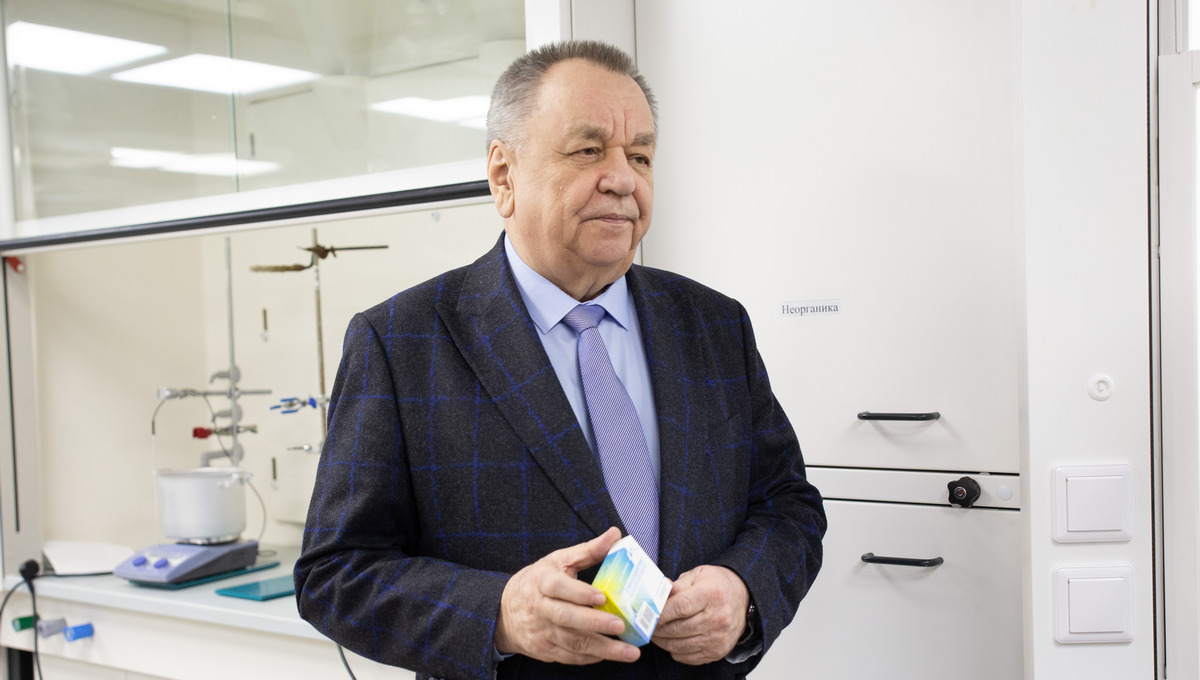Vladimir Rusinov, the Head of the Laboratory of Organic Synthesis of Ural Federal University, Corresponding Member of RAS, one of the creators of Triazavirin, told Rossiyskaya Gazeta why scientists have not yet invented a pill against coronavirus, how scientists managed to create vaccines against Covid pretty quickly and in what direction scientists are working now.
The virus is mutating rapidly, right before our eyes: more than a dozen strains have already appeared since the pandemic began. It is incredibly difficult to catch up with it. Scientists can for a long time select a compound that will bind to the viral protein of a certain structure, but during mutation its structure may change, and the virus will become resistant to the drug, Vladimir Rusinov explained why scientists have not yet invented a cure for coronavirus.
Moreover, the virus is not a cell, but an RNA particle covered with a protein shell, the chemist explains. The purpose of the virus is to penetrate into our cell at all costs, use it as an incubator for its own reproduction, and eventually kill the cell itself. Then break out and continue destroying other cells.
Today, there are no drugs that specifically and invasively attack viruses themselves. But there are a number of drugs, both Russian and foreign, that prevent viruses from living. Their action is different. Some prevent the virus from entering the cell, some do not let it reproduce there, and some create a barrier for its escape from the cell. All of them cannot serve as an absolute panacea, but if they are applied in time, usually at the initial stage of infection, when severe bacterial infection of the lungs has not yet begun, they help fight the disease. This has already been clinically proven. Everyone knows that antibiotics are powerless against viruses. An antibiotic is designed to interact with a bacterial cell; it will do no harm to a single viral particle or a human cell that has already been infected by it, scientist told the correspondent of “Rossiyskaya Gazeta”.
Today, scientists around the world continue to study known molecules with already identified antiviral properties and try to find new ones. This is a complex (and, most importantly, very time-consuming) process involving chemists, biologists, medics, technologists and engineers. They develop methods for synthesizing a molecule with the necessary structure capable of interacting with viral targets, study its antiviral effect in experiments on cells and animals, determine the harmlessness of the new substance for animals and humans. After that, the drug can be put into production. Worldwide practice shows that only one out of 10,000 molecules becomes a drug.
Basic science helped launch the coronavirus vaccine, Rusinov recalls. Scientists were working on the creation of drugs long before the pandemic.
If we take Sputnik V, a group of scientists led by academician Alexander Gintsburg, who received a state prize for his work, worked for almost 20 years on the very technology of constructing viral delivery systems of cassettes with the necessary gene. In other words, even before the pandemic, the vector mechanism itself was created, and when Covid-19 appeared, it became possible to deliver the S-protein of the SARS-CoV-2 virus into the cell using this technology. And not only that protein, but also the Ebola virus glycoprotein gene. In other words, the technology can also be used to create a vaccine against Ebola, says Vladimir Rusinov.
Miracles did not happen abroad either: scientists in many countries were working on the very mechanisms to create vaccines long before the pandemic. They were able to deploy them fast enough when there was an emergency, when it was necessary to act immediately.
A vaccine is good because it mobilizes the body to fight the virus with its own immunity, while drugs still often have many side effects. There are no harmless ones. Another thing is that not a vaccine can be created against all diseases, Vladimir Rusinov notes.
It took mankind less than a year to get a vaccine against Covid-19. Not just one: today there are already nine active preparations in the world. Three vaccines are in Russia, three in China, two in the United States, and one in Great Britain.

